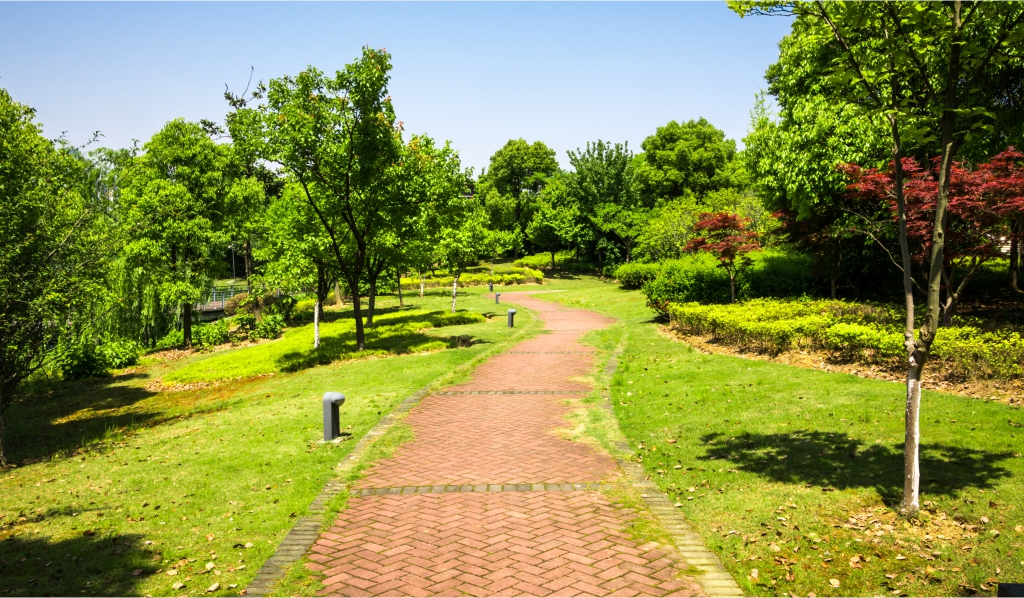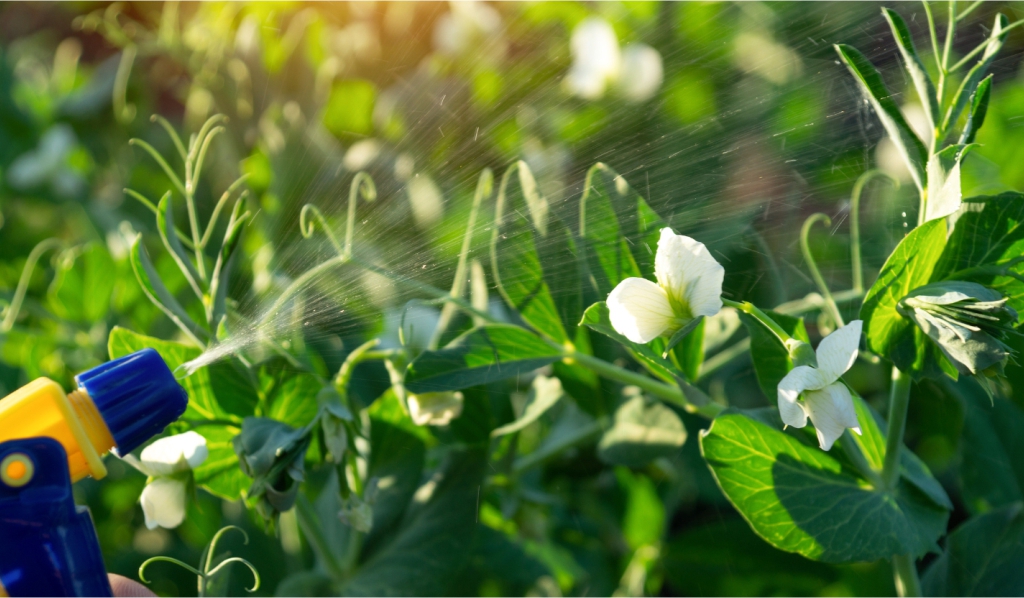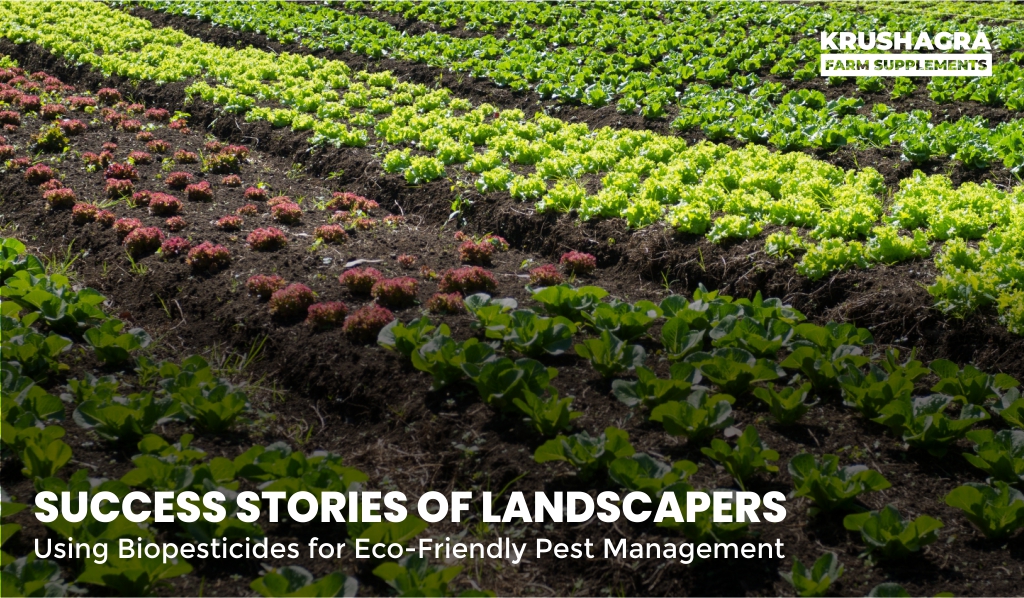As environmental awareness grows, landscapers are increasingly adopting sustainable solutions to control pests and maintain beautiful, healthy landscapes. Biopesticides—derived from natural materials like plants, bacteria, and minerals—are becoming popular for their eco-friendly approach to pest management.
Unlike traditional chemical pesticides, biopesticides target specific pests without harming beneficial insects, plants, or soil health. This article shares inspiring success stories of landscapers who have integrated biopesticides into their pest management strategies and seen remarkable results.
Landscaping for greener spaces: Reducing Chemical Footprint and Boosting Soil Health
Companies specializing in eco-friendly landscape management made the shift to biopesticides to minimize their environmental impact.
Previously reliant on chemical pesticides, these teams observed deteriorating soil quality and reduced plant resilience. After switching to biopesticides, they noticed impressive improvements:
Success Highlights:
- Reduced Chemical Dependency: Decreased chemical pesticide use by 85%, relying instead on biopesticides that target pests without harming the ecosystem.
- Healthier Soil and Plants: The biopesticides not only controlled pests but also supported beneficial microorganisms in the soil, which led to healthier plant growth and stronger root systems.
- Customer Satisfaction: Clients across the board appreciate the eco-friendly approach, boosting positive reputations and client bases among environmentally-conscious property owners.

Urban Planning: Effective Control of Aphids and Caterpillars
Landscaping businesses focused on urban green spaces, faced challenges managing aphids and caterpillars without harming the beneficial insects in the gardens.
Traditional pesticides affect pollinators, essential for the flowering plants in their landscapes. Many have turned to biopesticides with great success.
Success Highlights:
- Targeted Pest Control: Biopesticides effectively controlled aphid and caterpillar populations without harming bees, butterflies, and other pollinators.
- Sustainable Pest Management: With biopesticides, these companies minimized environmental impact while maintaining effective pest control.
Long-Lasting Solutions: The biopesticides worked over extended periods, reducing the need for frequent applications and saving on operational costs.
Eco-friendly Solutions: Promoting Biodiversity in Public Parks
Landscaping companies also specialize in public park landscaping, where maintaining biodiversity is essential. Chemical pesticides had proven effective against pests but were harming the park’s beneficial insects and wildlife.
Many implemented biopesticides to restore balance to the ecosystem.
Success Highlights:
- Enhanced Biodiversity: Eliminating chemical pesticides allowed beneficial insects and microorganisms to thrive, fostering a balanced ecosystem.
- Improved Wildlife Habitat: The parks became a sanctuary for birds and small animals, as biopesticides minimized harm to non-target species.
Positive Public Feedback: Park visitors also tend to notice the increase in wildlife and plant diversity, resulting in positive feedback and increased park engagement.
Sustainable Lawn Care with Fungal Biopesticides
Lawn care specialists struggled with persistent fungal infections that required frequent pesticide applications.
Seeking an environmentally friendly alternative, many have tested fungal biopesticides to target pathogens without disrupting soil health.
Success Highlights:
- Reduced Fungal Outbreaks: The fungal biopesticides provided a preventative solution, reducing the frequency and severity of fungal outbreaks in lawns.
- Stronger, greener Lawns: By preserving beneficial soil microorganisms, the biopesticides promoted a healthier, denser lawn with reduced chemical inputs.
- Cost-Effective Management: Many companies across the board found that biopesticides required fewer applications and reduced the need for fertilizers, saving on both costs and environmental impact.

Natural Gardens: Safeguarding Pollinator Health in Residential Gardens
Those teams that primarily work in residential gardens focus on ornamental plants and vegetables. Their clients are often concerned about pesticide residues in their garden spaces.
Biopesticides offered a natural, residue-free alternative for pest control.
Success Highlights:
- Residue-Free Gardens: Biopesticides left no harmful residues, ensuring the gardens were safe for children, pets, and edible plants.
- Pollinator-Friendly Pest Control: By choosing biopesticides, pollinators are protected and are essential for the health of flowering and fruit-bearing plants.
- Client Loyalty and Growth: The switch to biopesticides resonated with environmentally conscious homeowners.
Effective Use of Bacterial Biopesticides Against Grubs
Many flower specialists deal with an infestation of grubs that damaged turf in high-traffic areas. Chemical pesticides disrupted soil health and required frequent applications, so switching to bacterial biopesticides is ideal.
Success Highlights:
- Targeted Grub Control: The bacterial biopesticides controlled grub populations effectively without harming other beneficial insects.
- Sustained Soil Health: With biopesticides, the soil remained rich and healthy, supporting lush turf growth even in high-traffic areas.
- Efficient, Cost-Saving Solution: Reduced application frequency meant reduced costs while delivering long-lasting pest control.
The Impact of Biopesticides on Landscape Management
These instances underscore the significant benefits of adopting biopesticides in landscape pest management.
By moving away from chemical pesticides, many landscapers have not only managed pests effectively but also improved soil health, preserved beneficial organisms, and enhanced biodiversity in green spaces.
As environmental awareness grows, landscapers who embrace biopesticides can build a reputation as eco-friendly and sustainable service providers.
Key Benefits of Biopesticides for Landscapers:
- Eco-Friendly Pest Control: Biopesticides target specific pests without harming non-target organisms, making them an ideal choice for environmentally conscious landscapers.
- Enhanced Soil Health and Biodiversity: By preserving beneficial insects and microorganisms, biopesticides improve soil health, creating a robust ecosystem.
- Long-Term Cost Savings: Reduced need for frequent applications can make biopesticides a more cost-effective solution over time.
- Increased Client Trust: Landscapers who adopt eco-friendly practices build trust and loyalty with environmentally conscious clients, often leading to client base growth.
Frequently Asked Questions
What are biopesticides, and how do they work?
Biopesticides are natural substances derived from plants, bacteria, and minerals that control specific pests. They work by targeting pests without harming beneficial insects or the environment.
Can biopesticides control pests as effectively as chemical pesticides?
Yes, biopesticides can be highly effective, especially when used as part of an integrated pest management plan. They provide targeted pest control without the environmental risks of chemical pesticides.
Are biopesticides safe for children, pets, and pollinators?
Biopesticides are generally safer than chemical pesticides, leaving no harmful residues. They’re designed to affect only target pests, making them a safer option for gardens and landscapes.
How often do biopesticides need to be applied?
Biopesticide application frequency depends on pest type and environmental factors, but they often require fewer applications than chemical pesticides due to their lasting impact on pest populations.
Do biopesticides help improve soil health?
Yes, biopesticides support soil health by promoting beneficial microorganisms and reducing chemical residue buildup, creating a healthier environment for plants and beneficial insects.





